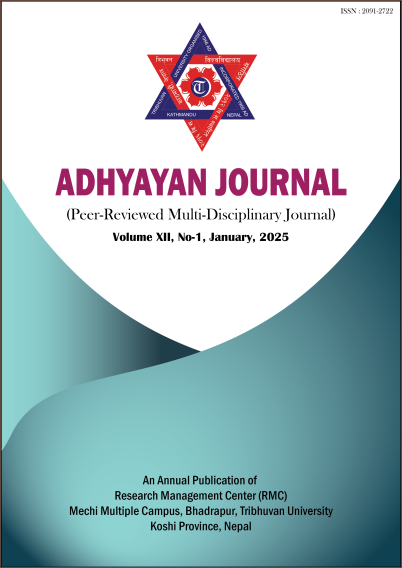Ethnography of The Traditional Dhaka Makers: A Case Study of Terathum District
DOI:
https://doi.org/10.3126/aj.v12i01.73547Keywords:
Cultural change, development, neoliberal markets, tradition, weavingAbstract
Integrating the fundamental cultural behaviors that define human nature across the globe. In underdeveloped nations like Nepal, the traditional weaving sector has been marginalized in the neoliberal culture. This study employed the qualitative ethnographic technique, utilizing both formal and informal interviews as well as observation methods to examine the influence of start-up entrepreneurship on the development of demandbased markets. The study's findings indicate that weaving is a highly significant cultural practice in rural areas, as well as in local towns and district headquarters of the country. In addition, the traditional weavers in Nepal, who are known for their expertise in creating Dhaka fabric, are resistant to adopting new and changed designs. Although a few traditional weavers have initiated a business at the field site. Integrating the fundamental cultural activities that define humanity throughout different societies worldwide. In underdeveloped nations like Nepal, the traditional weaving sector has been marginalized in the neoliberal culture. This study employed the qualitative ethnographic technique, utilizing formal and informal interviews as well as observation methods, to investigate the influence of start-up entrepreneurship on the development of demand-based markets. The survey has revealed that weaving is the predominant cultural practice in rural areas, as well as in local towns and district headquarters of the country. In addition, the traditional weavers in Nepal have a strong resistance to adopting new and changed designs in the Dhaka, a renowned traditional name. Although a few traditional weavers have initiated a business at the field site.




